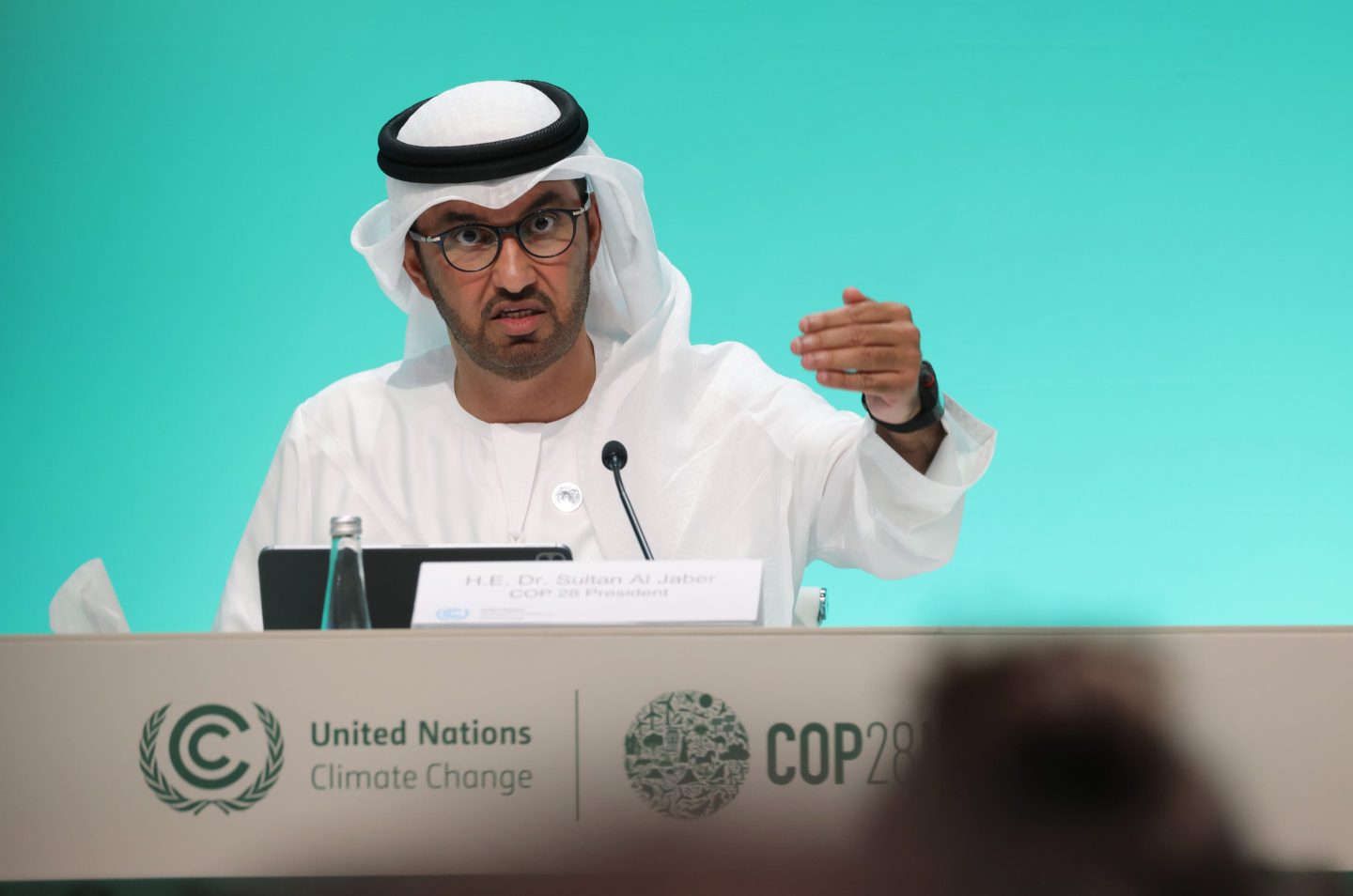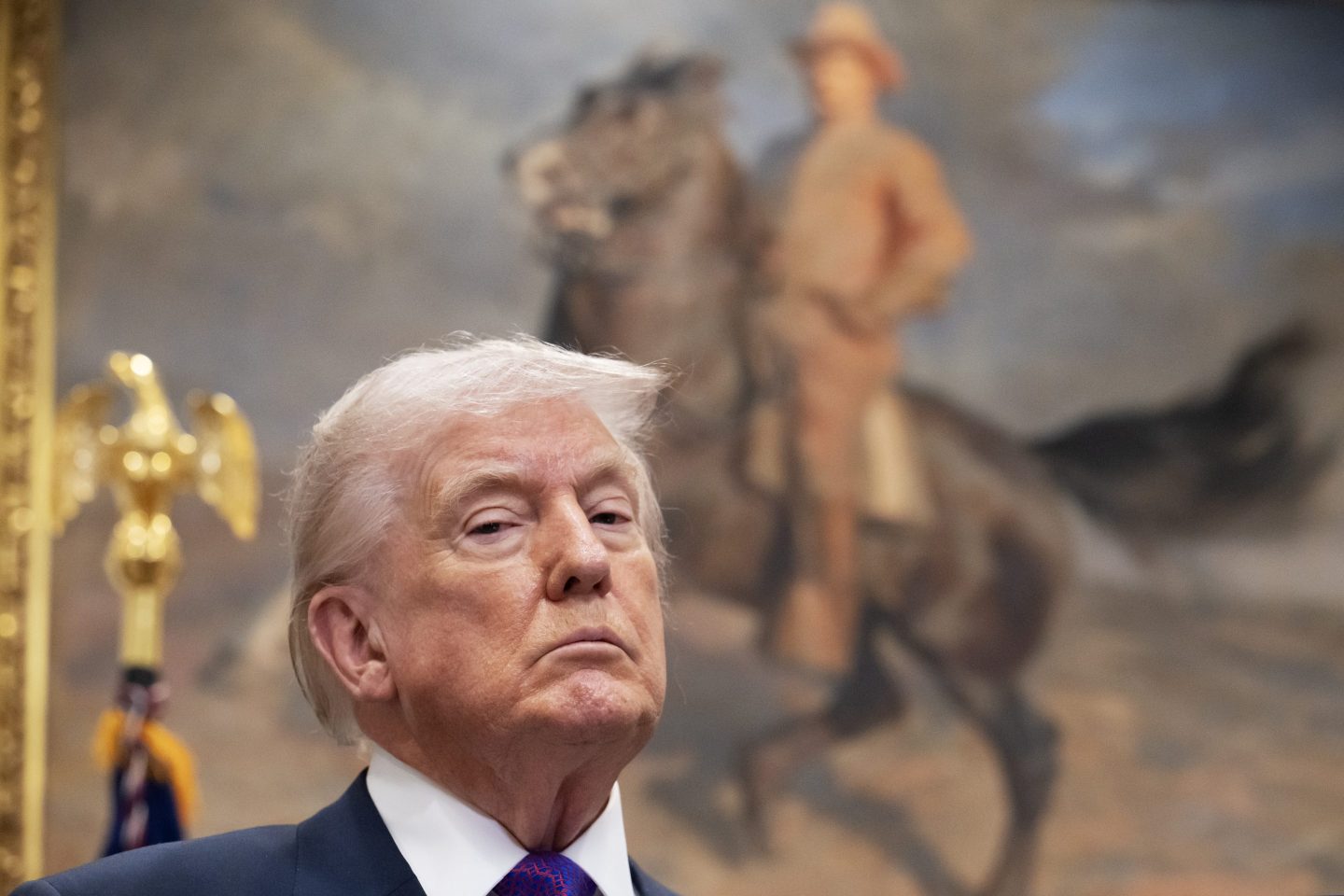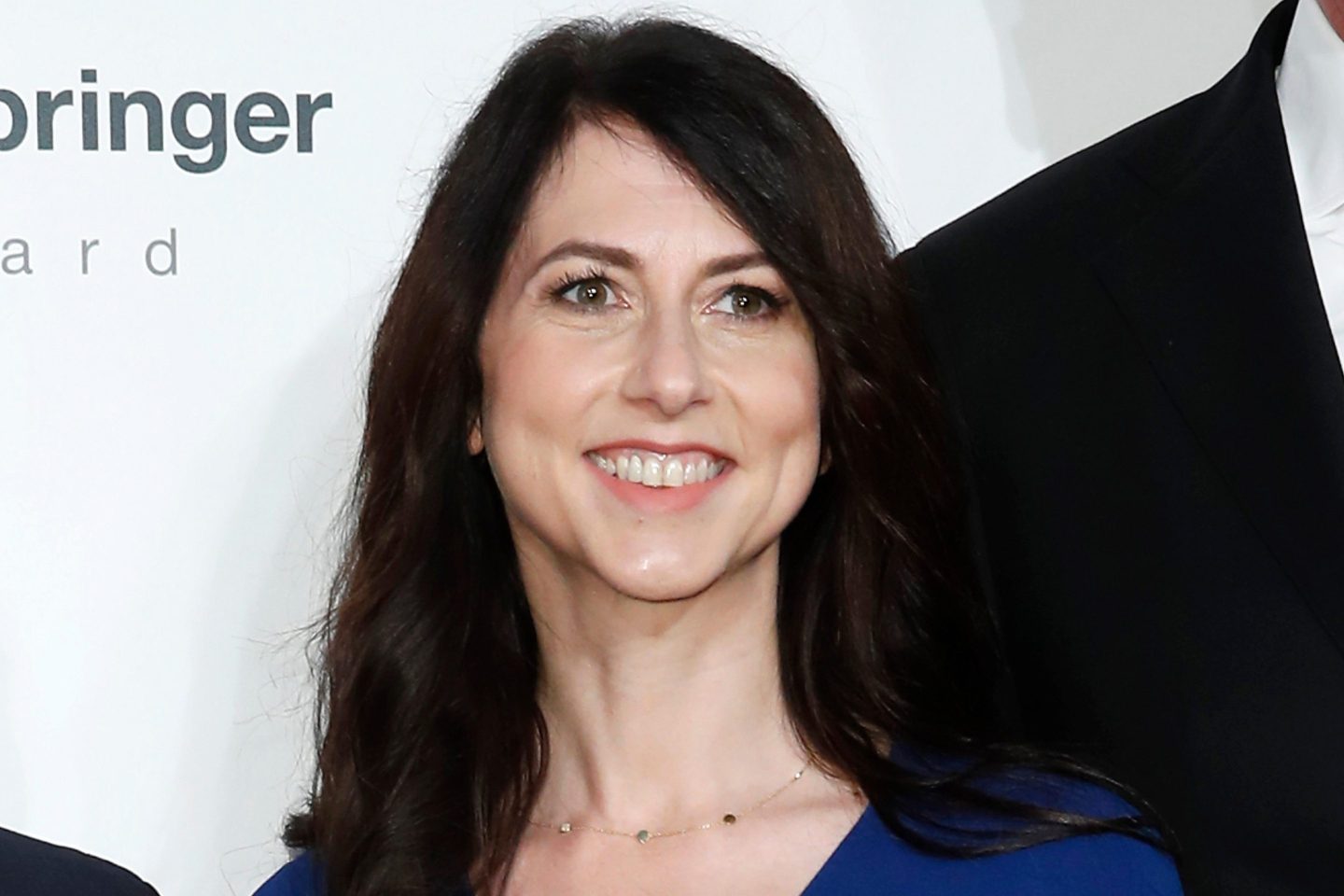Good morning.
Can an oil-dependent nation lead the fight against global warming? That’s the big question hanging over this year’s COP 28 conference, which is being led by the man who runs the Abu Dhabi National Oil Company, Sultan Ahmed Al-Jaber. Former Vice President Al Gore has rallied the critics who say selling oil should disqualify one from a leadership position in the climate fight. Recent press reports also excoriate ADNOC for planning to negotiate new oil deals on the sidelines of the confab.
I’ve spent the last week in Abu Dhabi hosting the Fortune Global Forum, with sponsorship from the government, so some may say my hands aren’t clean in this debate. But I think those who argue profit-seeking oil-producing companies can’t play in the climate effort misunderstand the nature of the challenge.
A new report out from the McKinsey Global Institute puts it in helpful perspective. A successful net-zero transition, the report correctly argues, requires achieving not just one objective—eliminating carbon emissions—but four interdependent ones: 1) reducing emissions 2) maintaining affordability 3) ensuring reliability and 4) supporting industrial competitiveness. A strategy that focuses exclusively on No. 1 while ignoring Nos. 2-4 will ultimately fail. And when you consider all four, the role of oil becomes critical—both to power the transition and to provide resources and knowledge for a successful green future.
But beyond that, it’s also clear to me that pursuit of profit will be the most powerful force driving this change. This morning, I’m at the sprawling and somewhat chaotic Expo City Dubai, where COP 28 will be held for the next two weeks. The COP process is designed for government officials, but these days bustles with prominent business leaders. In the last few hours, I’ve seen the CEOs of IBM, BP, Bank of America, Lazard, IKEA, and State Street, whose CEO Ronald O’Hanley captured the zeitgeist of both the event and the challenge when he told attendees: “Transitions are seldom straight lines. They are messy.”
Numerous reports, including the one I cited from McKinsey, have noted that despite all the progress that’s been made, the world is still far off course to reach net zero by 2050 and under some scenarios may not get there until the end of the century. But messy challenges create massive opportunities. When O’Hanley says it will require $2.4 trillion in financing over the next decade, the dollar signs light up in his business listeners’ eyes. These days, the effort to fix the climate is being driven by the profit motive—and that’s a good thing. The proliferation of CEOs at COP—including those from oil companies—makes me more optimistic about the future, not less.
More news below.

Alan Murray
@alansmurray
alan.murray@fortune.com
TOP NEWS
Is TikTok biased?
Several dozen Jewish tech leaders met privately with TikTok CEO Shou Zi Chew last month to complain that the social media platform disproportionately favors content that supports Palestine over Israel. Stumble founder Anthony Goldbloom claims that pro-Palestine TikTok content receives 54 times as many views as pro-Israel content. TikTok, for its part, denies that it skews its algorithm to favor one side or the other, and points out that it serves a global audience, not just a U.S. one. Fortune
Williams Sonoma bucks the trend
Williams Sonoma, led by the longest-serving female CEO in the Fortune 500, is bucking the home improvement slump that's dragging down competitors like Home Depot. “You can’t wait for a macro trend to improve your business. You have to make it happen,” CEO Laura Alber tells Fortune’s Emma Hinchliffe. The furniture retailer's surging shares are beating the broader market so far this year. Fortune
A chip CEO steps down
Peter Wennink, CEO of ASML Holding, will step down in April, to be replaced by current chief business officer Christophe Fouquet. ASML Holding is the only producer of the extreme ultraviolet lithography machines used to make the world’s most advanced chips—which has made it a target of regulation. Wennink has warned that U.S. export controls will just encourage China to invest in its own domestic chip industry. Financial Times
AROUND THE WATERCOOLER
Lucid dream startup says engineers can write code in their sleep. Work may never be the same by Rachyl Jones
EY CEO: ‘This is the COP to show, not tell, what climate action looks like’ by Carmine di Sibio
Commentary: It appears reports of Gen Z’s death have been greatly exaggerated by Suzy Welch
Sam Bankman-Fried and Elizabeth Holmes may just be the tip of the corporate fraud iceberg that costs the economy $830 billion annually, study says by Irina Ivanova
This edition of CEO Daily was curated by Nicholas Gordon.
This is the web version of CEO Daily, a newsletter of must-read insights from Fortune CEO Alan Murray. Sign up to get it delivered free to your inbox.














